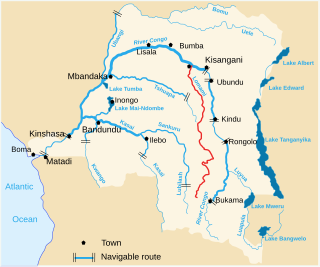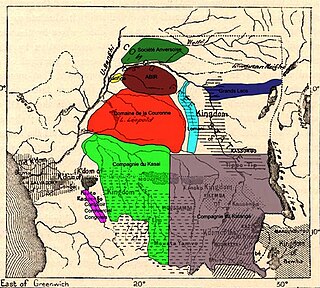
Leopold II was King of the Belgians from 1865 to 1909.

The Congo Free State also known as the Independent State of the Congo was a large state in Central Africa from 1885 to 1908. It was ruled personally by Leopold II and not by the government of Belgium, of which he was the constitutional monarch. Leopold II was able to procure the region by convincing other Eurasian states at the Berlin Conference that he was involved in humanitarian and philanthropic work and would not tax trade. Via the International Association of the Congo, he was able to lay claim to most of the Congo basin. On 29 May 1885, i.e. after the closure of the Berlin Conference, the king announced that he planned to name his possessions "the Congo Free State", an appellation which was not yet used at the Berlin Conference and which officially replaced "International Association of the Congo" on 1 August 1885. The Congo Free State operated as a corporate state privately controlled by Leopold II. The state included the entire area of the present Democratic Republic of the Congo and existed from 1885 to 1908, when the government of Belgium reluctantly annexed the area.

The French Congo or Middle Congo was a French colony which at one time comprised the present-day area of the Republic of the Congo, Gabon, and the Central African Republic.

The Abir Congo Company was a company that exploited natural rubber in the Congo Free State, the private property of King Leopold II of Belgium. The company was founded with British and Belgian capital and was based in Belgium. By 1898 there were no longer any British shareholders and the Anglo-Belgian India Rubber Company changed its name to the Abir Congo Company and changed its residence for tax purposes to the Free State. The company was granted a large concession in the north of the country and the rights to tax the inhabitants. This tax was taken in the form of rubber obtained from a relatively rare rubber vine. The collection system revolved around a series of trade posts along the two main rivers in the concession. Each post was commanded by a European agent and manned with armed sentries to enforce taxation and punish any rebels.

Isangi is a territory of the Democratic Republic of the Congo. It is located in the Tshopo District to the west of Kisangani, and mostly to the south of the Congo River. The largest community is Yangambi. Other communities are Isangi, Ligasa and Yanonge. The village of Yaboila was the scene of the murder in 1905 by Topoke people of two white officers of the Lomami Company, which led to severe reprisals.
Paul Lomami-Tshibamba was a Congolese journalist and author, acclaimed as "the first giant of Congolese literature".
The Mbole people are an ethnic group of about 100,000 people as of 1971 living in the Orientale Province, southwest of Kisangani in the Democratic Republic of the Congo.
The Topoke people are an ethnic group that live in the Isangi Territory south of the Congo River, downstream from Kisangani in Tshopo District of the Democratic Republic of the Congo. They speak the Poke language, in the Soko–Kele languages group of Bantu languages.

Yaboila is a village in the Isangi Territory of the Democratic Republic of the Congo.

Isangi is a town in the Tshopo Province of the Democratic Republic of the Congo, headquarters of Isangi Territory.
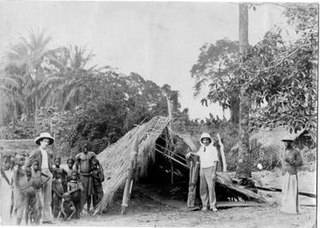
Yalemba was a mission of the Baptist Missionary Society (BMS) in the Democratic Republic of the Congo, lying on the north bank of the Congo River between Basoko and Yangambi.

Alexandre Delcommune, or del Commune, was a Belgian officer of the armed Force Publique of the Congo Free State who undertook extensive explorations of the country during the early colonial period of the Congo Free State. He explored many of the navigable waterways of the Congo Basin, and led a major expedition to Katanga between 1890 and 1893.

Bena Kamba is a community on the Lomami River in Maniema province of the Democratic Republic of the Congo.
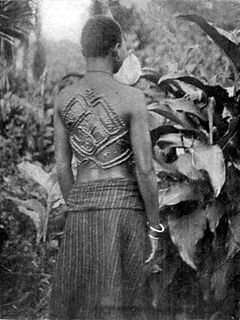
The Tetela people are an ethnic group of the Democratic Republic of the Congo, most of whom speak the Tetela language.

Cuthbert Christy was an English doctor and zoologist who undertook extensive explorations of Central Africa during the first part of the 20th century. He was known for his work on sleeping sickness, and for the Christy Report on practices very similar to slavery in Liberia in the 1920s.
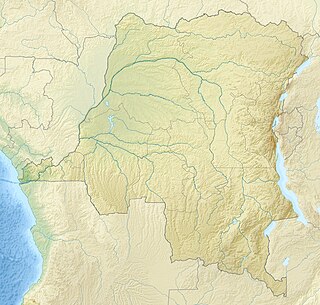
Lomami National Park is a national park located in the Democratic Republic of Congo in Central Africa. Situated within the middle basin of the Lomami River, it straddles the Provinces of Tshopo and Maniema with a slight overlap into the forests of the Tshuapa and Lualaba river basins. The National Park was formally declared on 7 July 2016. It is the 9th national park in the country and the first to be created since 1992.
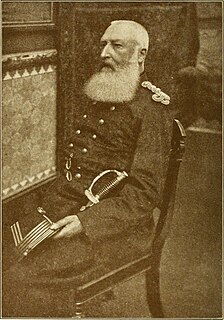
In the period from 1885 to 1908, many well-documented atrocities were perpetrated in the Congo Free State which, at the time, was a colony under the personal rule of King Leopold II of the Belgians. These atrocities were particularly associated with the labour policies used to collect natural rubber for export. Together with epidemic disease, famine, and a falling birth rate caused by these disruptions, the atrocities contributed to a sharp decline in the Congolese population. The magnitude of the population fall over the period is disputed, but it is thought to be between one and fifteen million.


